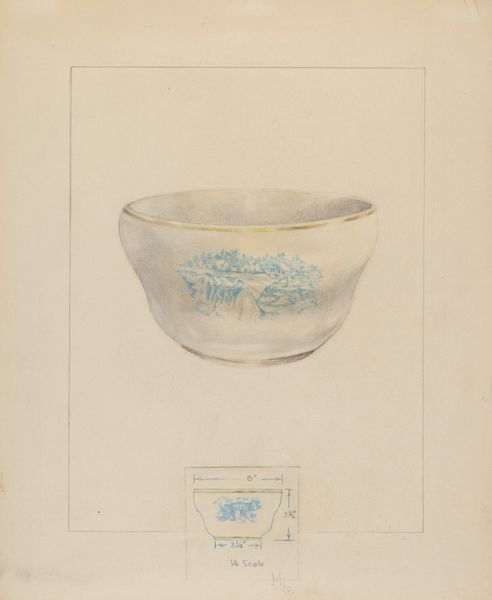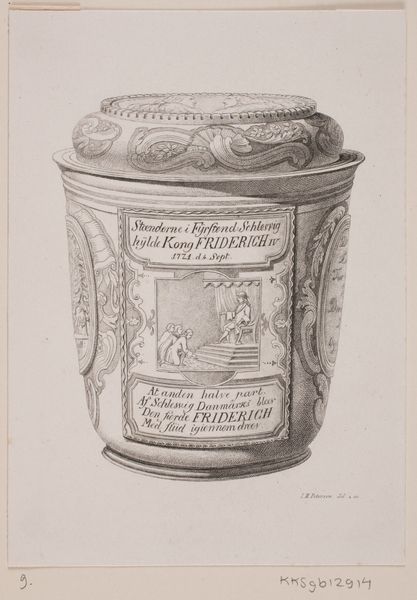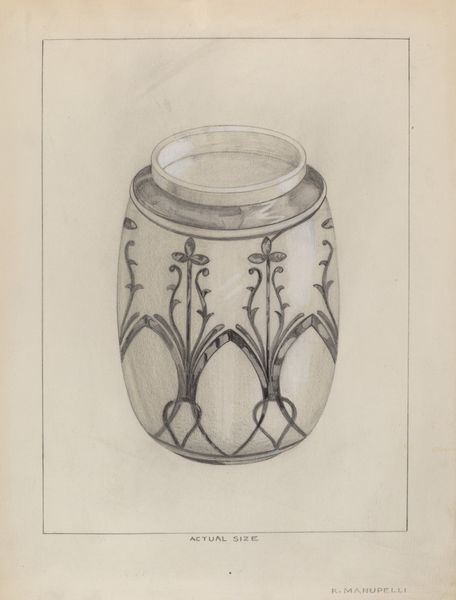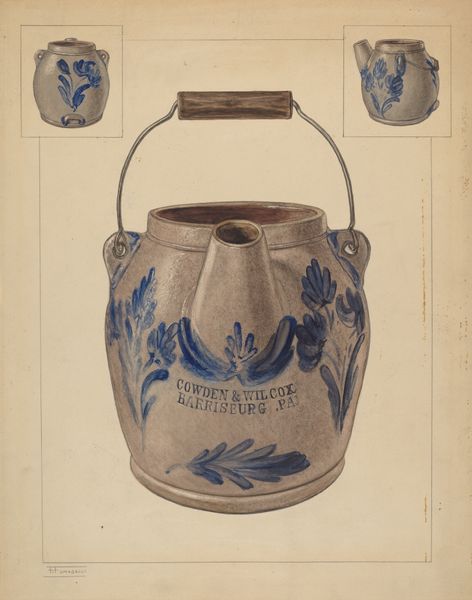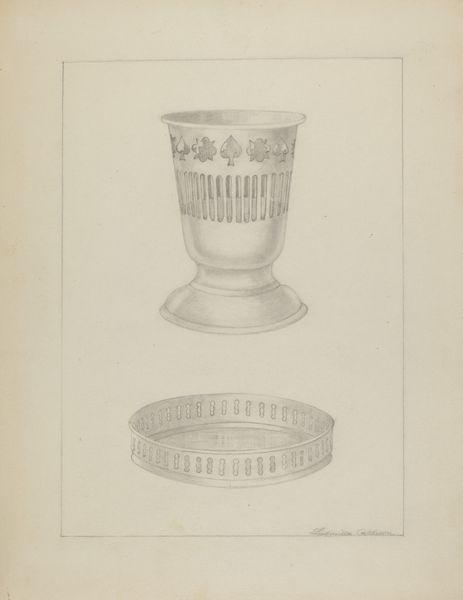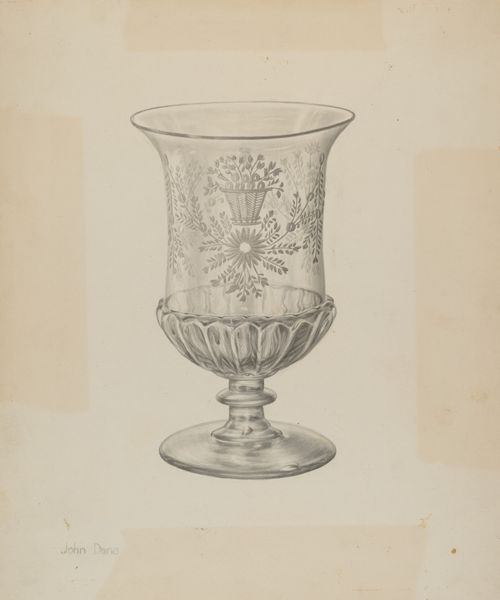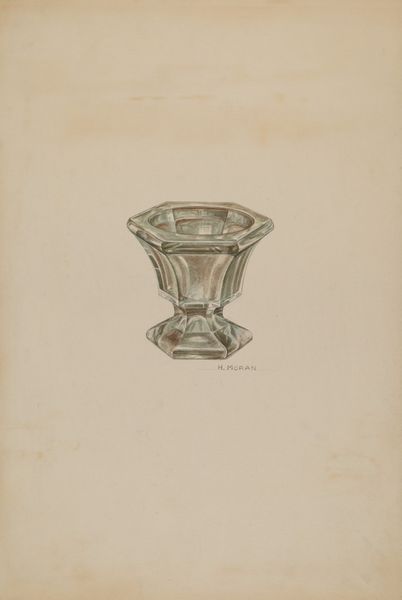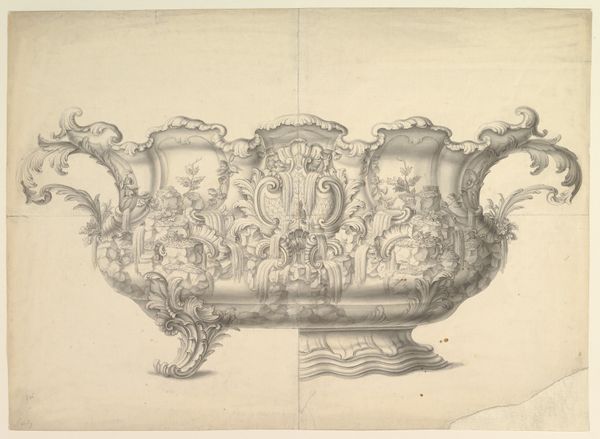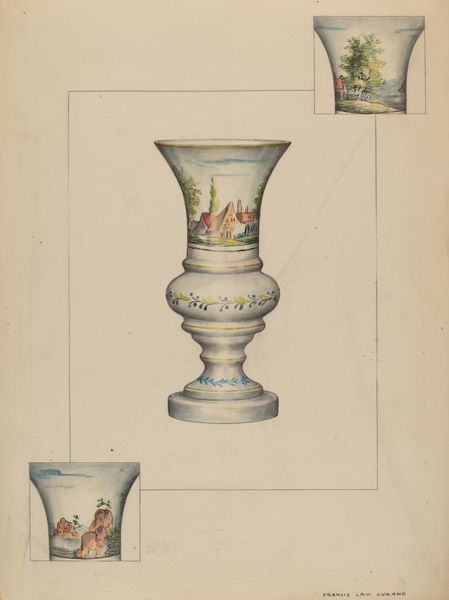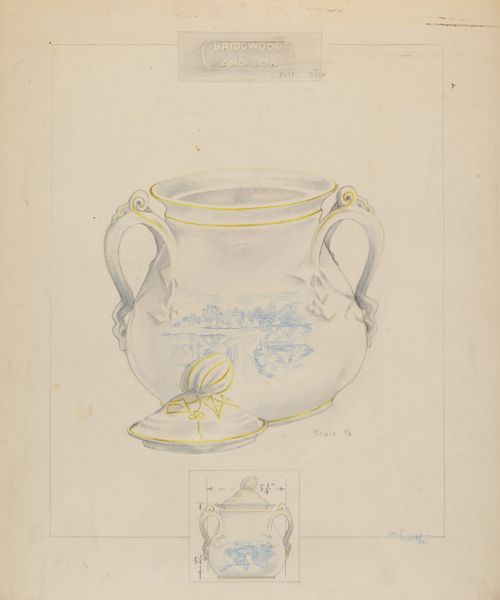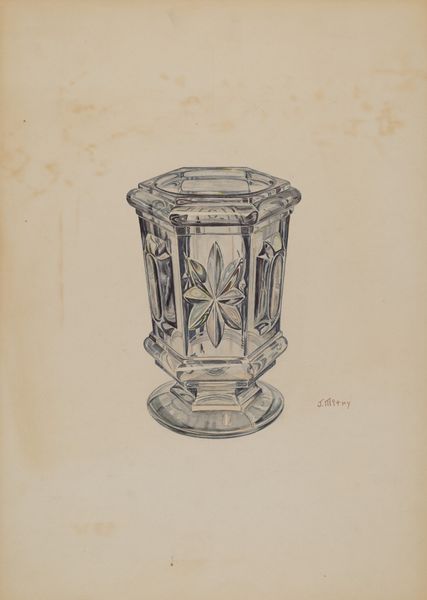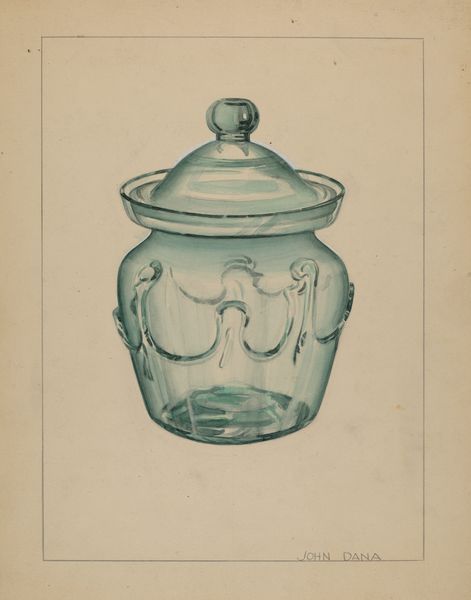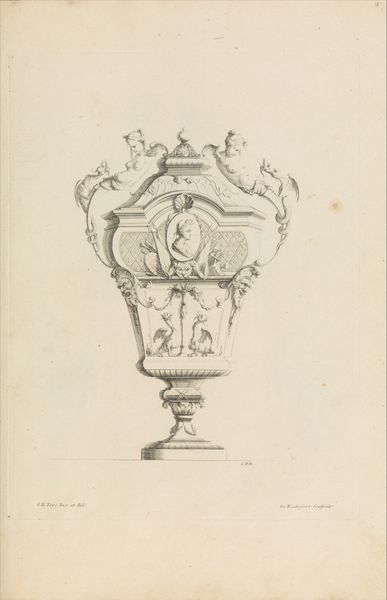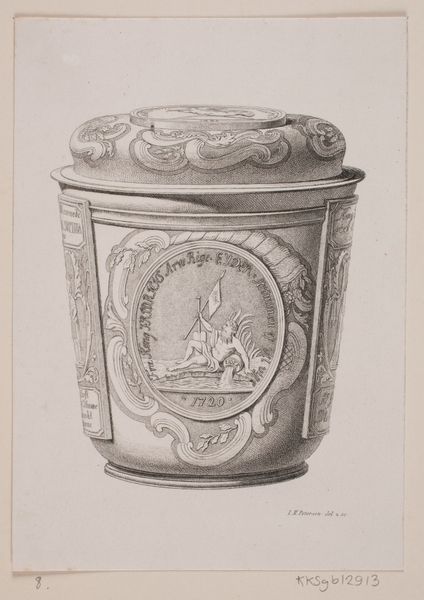
drawing, coloured-pencil
drawing
coloured-pencil
coloured pencil
history-painting
Dimensions overall: 30.5 x 22.9 cm (12 x 9 in.) Original IAD Object: 10" x 9 1/2"
Curator: Edith Magnette created this colored-pencil drawing circa 1936; it's titled "Bowl: 'Sinking of the Maine'." Editor: My first impression is of submerged history, something unearthed. The blues are muted, conveying a solemn, almost mournful tone. Curator: Absolutely. Magnette engages with the socio-political memory of the U.S.S. Maine’s sinking in Havana harbor. It’s a symbolic depiction of a naval disaster that precipitated the Spanish-American War. Considering the date of the artwork's creation, what resonance do you think the topic had for audiences at that time? Editor: Given its execution around 1936, during the Great Depression and the lead-up to another global conflict, it likely served as a reminder of past traumas and the fragility of peace. It's interesting how she chose to depict this on what appears to be a commemorative bowl – elevating the idea of domestic objects bearing political weight. Curator: Magnette clearly used colored pencils for precision, but note that, in addition to the overall design, several detailed vignettes also appear, above and below. Editor: Yes, these surrounding details feel almost like studies. I'm curious, how were Magnette's works received during her time, and how has our perception of them evolved considering the art world's renewed interest in socially engaged practices? Curator: Historically, the institutional and commercial art world sidelined such explorations by women and people of color. But viewed today, the artist anticipated contemporary intersections between material culture, popular history, and embodied trauma. Magnette's art fosters critical conversations surrounding representation, historical narrative, and gender. Editor: It's incredible to think about art's capacity to reignite these vital conversations, decades after its creation. Thank you. Curator: Indeed. Thank you as well. It’s essential to acknowledge that art constantly challenges dominant paradigms while revealing alternate perspectives that advance our understanding of ourselves, each other, and the world.
Comments
No comments
Be the first to comment and join the conversation on the ultimate creative platform.
